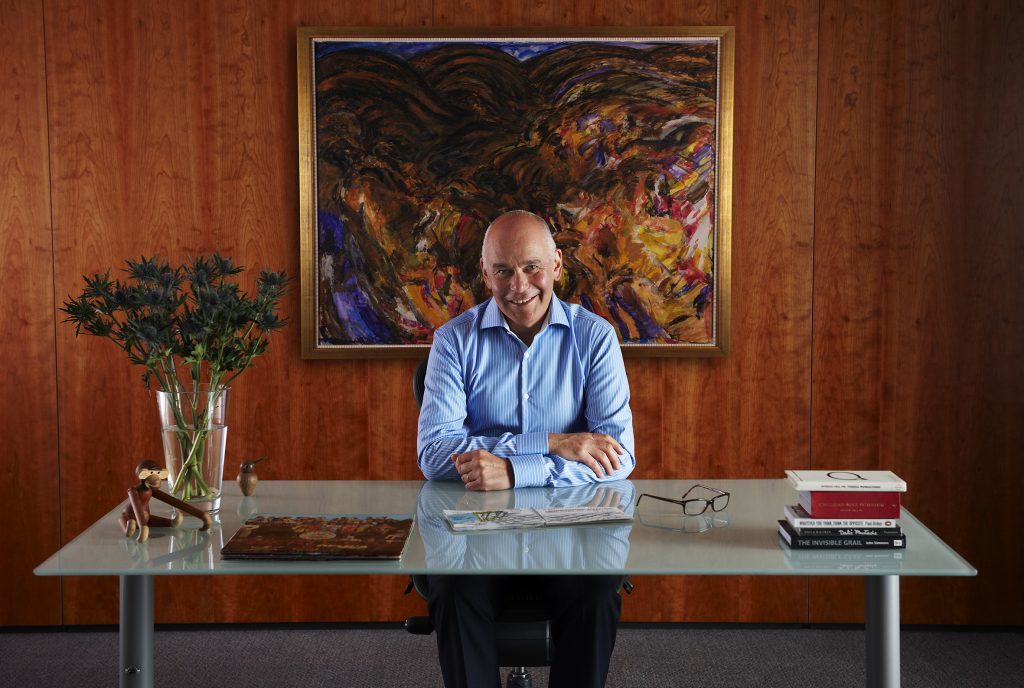
Norway’s Edvard Munch should really be Planet Earth’s artist of 2016. How many of us have woken up this year with facial expressions similar to Munch’s The Scream as world events unfolded before our eyes? The sad losses of David Bowie, Prince and Leonard Cohen. And the sensational outcomes of Brexit and the US Presidential election. Not to mention the see-sawing of expectations in Aberdeen.
The Scream is said to represent the anxiety of modern man and let me tell you this modern man has had his fair share of anxieties over the last year.
In this overwhelming year of unbelievable and unthinkable change, it is perhaps good to remind ourselves daily that the only thing that is certain, is, that nothing is certain. There was a time that geo-politics seemed to move at the speed of glaciers. Now it is like a tsunami that sweeps over us with each passing month. The results of the Brexit referendum and the US Presidential election are not the big stories. It’s what lies behind them – a rejection of the norms that the business community has taken as read.
Like many, I woke on Friday June 24th with the Munch style scream, but some 180 days later am I calm, relaxed, with my internal sat-nav showing me the quickest and best route out of Europe and the EU? In 2017, we will embark on our own voyage of discovery. Right now, we don’t know where it will take us, how rough the voyage will be nor how long it will take.
So, should we pull our collective duvet over our heads, close our eyes and set the alarm to sometime in March 2019 when everything will be a bit clearer? Are we just passengers with no control over our businesses?
What we have seen over the last six months is that the decision to Brexit has had much less negative impact than we feared. Why is that?
A friend directed me to an article in the Harvard Business Review written some years ago by Matthew S Olson, Derek van Bever and Seth Very “When Growth Stalls”. In the article, the authors suggest that in business 87% of factors impacting on success are within management’s control and only 13% outwith. That would suggest that to a great extent, we are in charge of our own destinies.
Business always adapts.
What we have seen in the past – think 1973, 1980, 1990 and 2008 (I’m old enough to remember them all) is that business can be kick-started by geopolitical events and downturns. In the early 1980s recession, Bill Gates and Paul Allen launched a company from their first office in an Albuquerque motel room. They decided to call it Microsoft. Amazon’s sales grew by 28% in 2009 while many in the retail sector tanked. More prosaically perhaps, Domino’s prospered during the last recession, recognising that less disposable income meant more people sitting at home on a Saturday night eating pizzas while watching X Factor.
Closer to home, we have seen that the dramatic fall in the price of oil has caused us to create a leaner, more efficient industry. Perhaps unlike previous cycles in the sector, the protracted nature of the current downturn feels like it is here to stay and as such, will require further adaptation rather than the recovery we have been accustomed to. So that also means diversification. We have become less fixated with oil and gas as an end in itself, but rather now see it as an essential part of a long term energy strategy in which we can be major players adapting the skills we have.
So disruption provides opportunities.
And what of the legal sector?
We need to understand not just our clients’ here and now, but their long term strategies. If we believe that they will be doing the same in five years as they are doing now, we are in for a big surprise. The combination of technology, geopolitical and sociological change is going to make some aspects of business unrecognisable. As someone put it to me, we have the choice – “Uber or be Ubered.”
As the UK redefines itself on the world stage, our clients are going to have to be a lot more active in terms of their international strategies. We have a role to play in assisting them with that. Business has taken me over the last few months to nine US cities, Toronto, Berlin and Oslo. When I look at my diary for next year, I have business trips planned to Tel Aviv, Warsaw, Shanghai (twice), Beijing, the US (twice) and Sydney.
But what the events of the last year have underlined is that there is a clash between globalisation and cultural identity. The one size fits all model is being rejected. We need intimacy with the markets in which we operate. We need to understand their cultures and traditions and not try and make them fit into our matrix. For us that means investing in our peer partnership of the best firms in each jurisdiction that our clients operate in.
I approach 2017 with a healthy cocktail of appropriate trepidation (my wife is a psychotherapist) but larger measures of fascination and excitement. There will be challenges, undoubtedly. But a dynamic market also means that there will be opportunities. Change is exciting and those that react positively to it always prosper. Those that hold their heads in their hands and wait for it to pass over, risk atrophy or worse.
But then, I have always defaulted to my inner Tigger rather than my inner Eeyore…
Philip Rodney is this week’s Energy Voice Guest Editor. He is also the chairman of leading Scottish law firm Burness Paull.
Recommended for you
